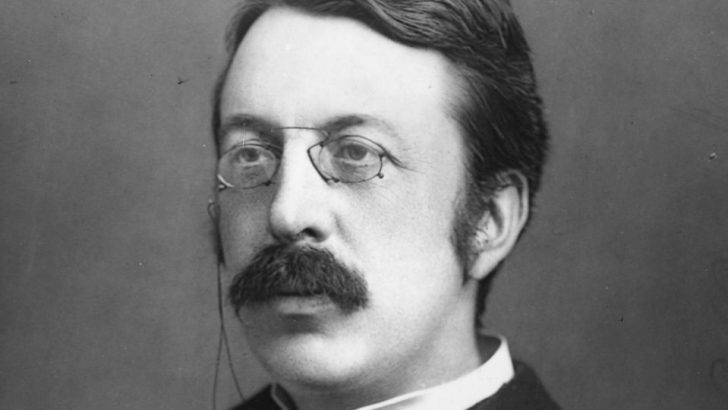I am grateful for a recent email from Dr Una Hunt telling me that Charles Villiers Stanford’s opera The Veiled Prophet [of Khurassan] is now available to view on the RTÉ Player.
The recording was made at last year’s Wexford Festival when David Brophy conducted its single performance.
Excepting Polish baritone Simon Mechlieski as the prophet, the cast was principally Irish. The producer was the ubiquitous Una Hunt.
She has undertaken invaluable research into forgotten Irish composers, not least Limerick-born George Osborne (1806-1893). Her CD of his piano music is available on the RTÉ Lyric FM label. Performer and academic, Una Hunt has double doctorates in music with her PhD from Maynooth and DMus from Queen’s in Belfast.
Stanford’s opera was initially produced in a German translation at Hanover’s Hoftheater on February 6, 1881. Reviewing it, The Musical Times reported that Stanford “has come before the world in a new light as the composer of grand opera, a work of greater importance than has hitherto appeared from his pen”.
Interestingly, Stanford based the opera on Thomas Moore’s famous poetical Oriental romance, Lalla Rookh, with its name taken from the heroine of the story, the daughter of the 17th-Century Mughal emperor, Aurangzeb.
Strangely, The Veiled Prophet, set in Persia, was not seen at Covent Garden until 1893 when it was sung in Italian as Il profeta velato. The Wexford staging on October 28, 2019 was the first in its original English.
That performance was critically well received with Opera News referring to Stanford’s “sense of structure and his ear for orchestration being very strong”.
The cast was also highly praised with Operawire mentioning Simon Mechlieski’s “accenting and colouring the vocal line skilfully to bring out the power and charisma of the prophet Mokanna”.
There were plaudits, too, for Sinéad Campbell Wallace’s “truly excellent” and “emotionally expressive performance” as priestess Zelica. The reviewer found Mairéad Buicke “no less impressive” as slave-girl Fatima and for “singing her principle aria, There’s a bower of roses, with great nuance and depth.”
John Molloy and Gavan Ring were honourably favoured with the former’s “true bass voice produced with seeming effortlessness” and the latter giving “equal pleasure”.
Conductor David Brophy was singled out for “energetically driving the drama forward and successfully contrasting the large scale choral [Wexford and TU Dublin Conservatoire choruses] and orchestral pieces with the small-scale chamber-music-like qualities of other sections”.
Charles Villiers Stanford (1852-1924) was born in Dublin’s Herbert Street. He studied initially at the Royal Irish Academy of Music before entering Queen’s College, Cambridge in 1870. He moved to London’s Trinity College three years later and undertook further study in Leipzig and Berlin.
He was appointed professor of composition at the newly founded Royal College of Music in London in 1883 and held the chair of music at Cambridge from 1887. His pupils included Vaughan Williams, Gustav Holst and John Ireland. Quite a prolific composer, Stanford made a very significant contribution to the music of the Anglican Church. He is buried beside the revered Henry Purcell in Westminster Abbey.


 Charles Villiers Stanford
Charles Villiers Stanford 